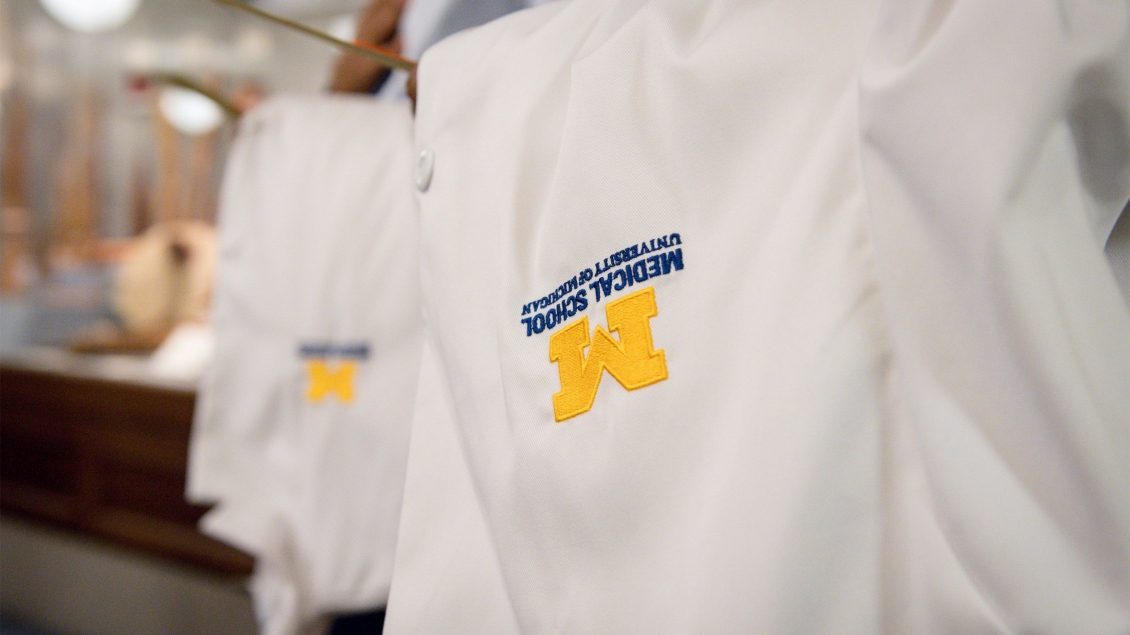
First Things First
Learn about prerequisites for employment at University of Michigan Health.
We are delighted that you have chosen to explore Michigan Medicine as a possible training site. We look forward to welcoming you into our community, which aims to foster a diverse, collaborative culture of excellence and innovation in graduate medical education.
The information in the accordions below provides some useful information regarding employment eligibility.

There are a wide variety of programs and opportunities for Michigan Medicine house officers and faculty through our Office for Health Equity and Inclusion (OHEI).
Explore the countless resources and tips for settling in to your life at Michigan under Our Community.
An applicant for postgraduate medical training must be a graduate from an approved school generally recognized for its quality of education.
For U.S. medical school graduates, the applicant must be a graduate of a medical school that has been accredited by the Liaison Committee on Medical Education (LCME). The list may be found at: https://lcme.org/directory/accredited-u-s-programs/
For U.S. osteopathic medical school graduates, the applicant must be a graduate of a medical school that has been accredited by the American Osteopathic Association (AOA). The list may be found at: https://osteopathic.org/about/affiliated-organizations/osteopathic-medical-schools/
For Canadian medical school graduates, the applicant must be a graduate of a medical school that has been accredited by the Committee on Accreditation of Canadian Medical Schools (CACMS) or Liaison Committee on Medical Education (LCME*). The lists may be found at: https://cacms-cafmc.ca/about-cacms/accredited-programs/https://lcme.org/directory/accredited-u-s-programs/
*LCME accreditation of Canadian medical schools ceases June 30, 2025.
For non-U.S. or non-Canadian medical school graduates, the applicant must hold a current, valid ECFMG certificate and be eligible for a State of Michigan professional license. State of Michigan license eligibility is available at: https://www.michigan.gov/lara/bureau-list/bpl/licensing-requirements-help-guides
For dental school graduates, the applicant must be a graduate of a dental school that has been accredited by the Commission on Dental Accreditation (CODA). The list may be found at: https://coda.ada.org/find-a-program/search-dental-programs
For podiatric medicine graduates, the applicant must be a graduate of a podiatric medicine school that has been accredited by the Council on Podiatric Medical Education (CPME). The list may be found at: https://www.cpme.org/podiatric-medical-colleges/list-of-podiatric-medical-colleges/
Successful completion of a background check is a condition of employment.
Successful completion of a pre-employment drug screening is a condition of employment.
Non-US citizens are required to have one of the following: a J-1 visa sponsored by the ECFMG; have a valid Permanent Resident (green card) status; in the process of pursuing a green card application and hold a valid EAD on the basis of that application that the U-M International Center has reviewed and determined the probability that the EAD will remain valid or can be extended for the duration of the training program; or have an EAD card associated with the granting of Deferred Action for Childhood Arrivals (DACA).
Within very limited circumstances, exceptions by the University to allow employment and clinical credentialing on another visa may be considered on a case-by-case basis at the discretion of the Program Director and must be prospectively approved by the GME Committee.
For training programs that have required rotations at the Veterans Affairs Medical Center (VAMC), an applicant must be eligible to be credentialed to work at the VAMC, which includes meeting federal employment provisions that are subject to change from time to time. For males who are U.S. citizens or who lived in the U.S. between the ages of 18 and 26, registering with the Selecting Service System is a requirement.
Graduates of international medical schools are required to hold a current, valid certificate from the ECFMG.
Completion of the applicable examinations is required:
MD — USMLE Step 1 and 2 CK
DO — COMLEX Step 1 & 2
Dentists — NBDE Steps 1 & 2
Podiatrists — NBPME Part 1 and 2 (Class of 2015 and after [excluding Class of 2016], part 2 written & CSPE)
A State of Michigan Medical License and Controlled Substance License (Educational Limited or Permanent) is required. Any house officer with a permanent medical license must also obtain a personal Federal DEA registration.
If a full medical license will be sought upon entry or during training (due to exceeding eligibility years for Educational Limited License or another reason) attempts to pass any USMLE Step must not exceed a total of 4 attempts.
Individuals applying for licensure, or renewing, shall complete training that meets specific criteria in identifying victims of human trafficking. You can view a training video that meets the standards established by the State of Michigan Licensing and Regulatory Affairs.
Individuals applying for a controlled substance license must have completed a 1-time Controlled Substance Awareness Training course. For your convenience, a training video that meets the standards established by the State of Michigan Board of Pharmacy Administrative Rules can be found below.
Specific to specialties, life support training courses are a requirement prior to the clinical start date. The program administrator can provide the course(s) required for your specialty.
Incoming PGY-1s: Basic Life Support, Advanced Cardiac Life Support and/or Pediatric Advanced Life Support is required prior to the clinical start date and is offered during orientation.
Incoming PGY-2s and higher: Basic Life Support, Advanced Cardiac Life Support and/or Pediatric Advanced Life Support is required as part of clinical credentialing and is a pre-hire condition of employment.
Completion of the OHS preplacement assessment, including providing proof of immunity/vaccination to certain communicable diseases and if needed obtaining any immunizations/vaccinations.
START DATES
PGY1 residents typically start mid-June. PGY2 and higher residents and fellows typically start July 1 (unless otherwise noted by the training program).
House officers may be assigned duties in ambulatory care and outreach clinics, or other similar institutions.
Once you become an employee of the University, the collective bargaining agreement between the Regents of the University of Michigan and the House Officers Association determine your salary and benefits as well as other terms and conditions of employment consistent with Michigan law.
The House Officers Association is the duly recognized bargaining representative for house officers under this agreement.
For more information on the annual salary and some of the essential aspects of benefits, view the Salary & Benefits page.